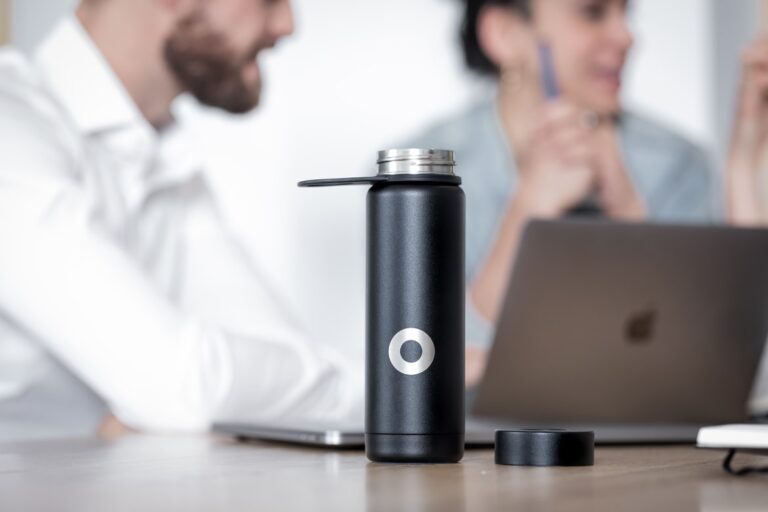Portable water bottles are great for keeping you hydrated anytime, anywhere. However, plastic water bottles can be detrimental to your health and to the environment. If you like the portability of plastic water bottles, but hate the effects of the material to the ecosystem, consider using the alternative: aluminum water bottles!
For all your aluminum bottled water needs, check out My Own Water and their line of fully customizable aluminum bottles that can be filled with your choice of water: from fresh spring water to electrolyte infused water.
Check them out here: https://myownwater.com/aluminum-water-bottles
Plastics are Harmful
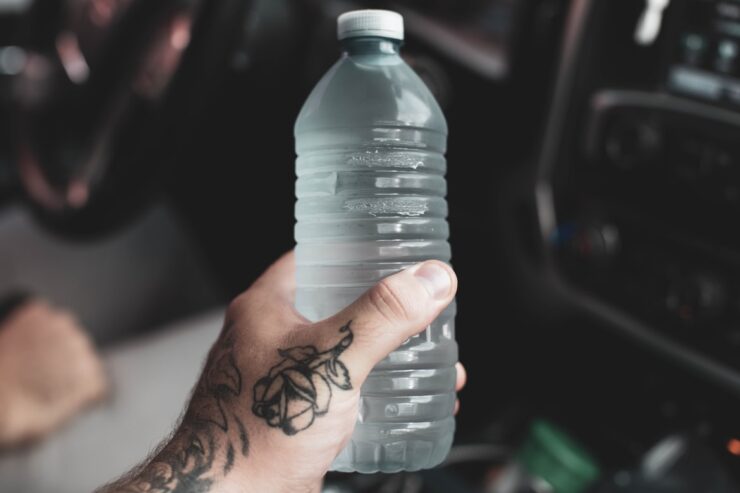
How detrimental is plastic, exactly? Plastic bottles used for water are typically made of High Density Polyethylene (HDPE), or Polyethylene Terephthalate (PET). These types of resins contain harmful substances that can leach into your food and drinks, as well as affect the environment as they degrade in landfills or oceans.
Speaking of plastic degradation, plastics don’t actually biodegrade, but rather break down into smaller and smaller particles called microplastics that are invisible to the naked eye. Yet, these microplastics can get into our seafood, our meats, and even our crops when these organisms come in contact with plastics, resulting in a full cycle of plastic consumption.
To Your Health
As these plastics are processed, they go through several stages of heating, melting, and grinding. The process releases harmful chemicals into the air and into the environment, affecting everyone that has had prolonged exposure to these substances. Dust from resins can cause rhinitis, respiratory infections, and vision problems as well.
Plastic bottled water is just as harmful to consumers drinking liquids out of them. Plastics have been known to leach chemicals when heated, such as when left in a car or under the hot sun for prolonged periods. With PET bottles, there is a high chance of drinking estrogenic compounds that affects hormones in the body, typically when the plastic is heated and the chemicals leach.
To the Environment
HDPE contains nonylphenol, which is harmful to sea and aquatic life. When your plastic water bottles make their way into the oceans, the plastic particles cut through the stomach linings of the animals that ingest them. The plastic leaches chemicals into the water as well, altering the quality of the water, and destroying the natural balance of the ecosystem.
The environment is threatened by the use of plastics, and since plastic doesn’t biodegrade, the material will continually offset the balance of the ecosystem. Animals and plant life are all reeling from the harmful effects of a plastic world, and the carbon footprint of the material is too great to ignore the detrimental effects on the atmosphere and surrounding ecosystems.
Why Aluminum?
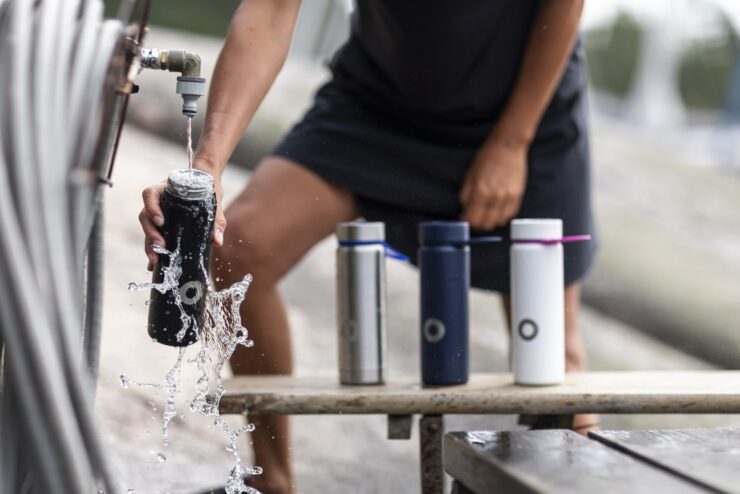
Instead, make the switch to use aluminum bottles instead of plastic ones. Aluminum bottles are just as durable and portable as plastic bottles, but without the harmful effects to you or the environment.
Aluminum bottles, unlike aluminum cans, are usually made from solid aluminum, and have no inner plastic liner. The plastic liner in aluminum cans make these harder to recycle. Since aluminum bottles don’t have plastic liners, they can be easily recycled again and again.
Safe and Recyclable
Aluminum is a completely recyclable material, having the capacity to be recycled over and over again. The metal is one of the most sustainable materials on earth, and is the most abundant metal in the earth’s crust at around 8.1% of the metals found.
More than 70% of all aluminum being used today is made from recycled aluminum, and it takes only a fraction of the energy to recycle aluminum compared to mining for new raw material. Unlike plastic that leaches harmful substances, pure aluminum does not change in composition, so the material does not release any harmful chemicals into your drinking water.
Durable
While you may get an alternative in glass bottles, glass is known to be particularly fragile. Glass bottles shatter upon impact, and it doesn’t take a lot of force to break even a thick glass bottle. However, aluminum is durable, albeit easily dented.
Dents and scratches don’t stop aluminum bottles from holding water and other liquids well, despite its un-aesthetic quality. When properly cared for, aluminum bottles can last for years without breaking, and can keep your liquids secured through your travels as you reuse your aluminum water bottles!
Benefits of Aluminum Bottled Water
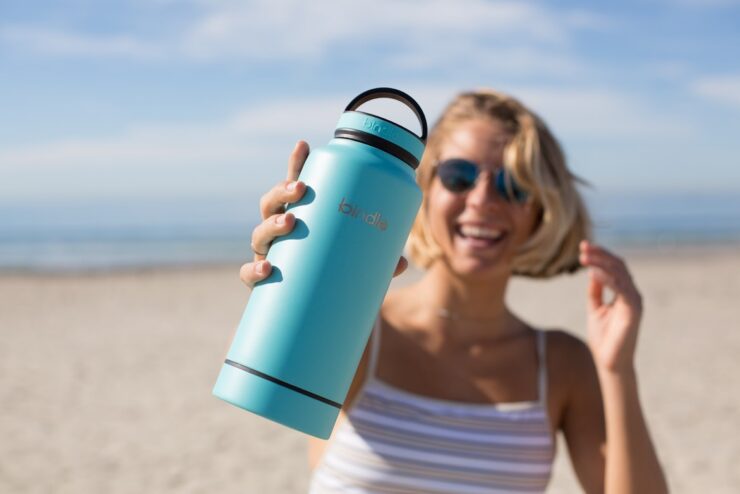
Customizable
Aluminum water bottles are just as customizable as plastic bottles, making them perfect for marketing and promotional purposes! Elevate your business with aluminum bottles that bear your company’s name and logo, or promote your sporting event with specialized aluminum water bottles for your fans and guests.
Aluminum water bottles are perfect for concerts, marathons, and other events where people are most likely to leave their bottles behind after the event ends. This makes clean up and recycling possible, unlike plastic water bottles that can no longer be recycled. Businesses that use aluminum bottles are also praised for their unique marketing tool!
Keeps Your Water Cool
Aluminum is a metal, and metals are terrific at keeping different temperatures for long periods of time. Both hot and cold drinks can be placed in an aluminum bottle without any ill effects, and you can keep your liquids cool for longer in an aluminum water bottle than a plastic one. You can even store some in the freezer for ice-cold water on the go!
Plus, aluminum can be heated up, so for those times when you need hot or warm water with you, an aluminum water bottle can provide you with the convenience of hot water that is portable and easily reheated over the stove!
Aluminum is the Alternative
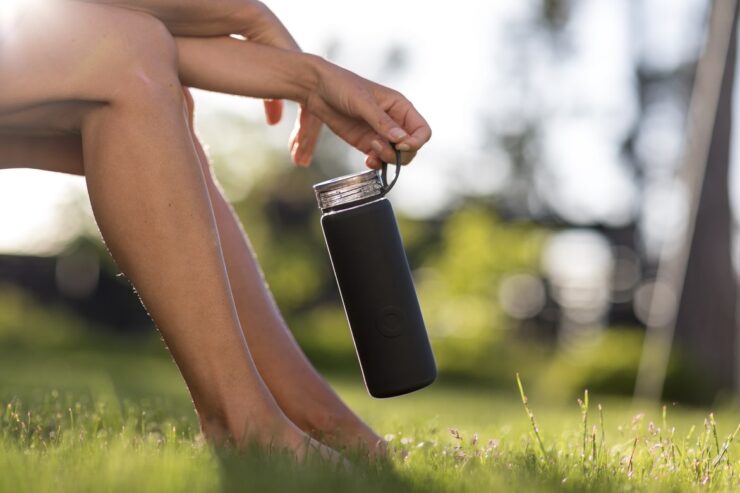
Aluminum is an often overlooked material, but the unique properties of aluminum can greatly help in our efforts to combat climate change, reverse the effects of environmental degradation, and in preserving our ecosystem.

